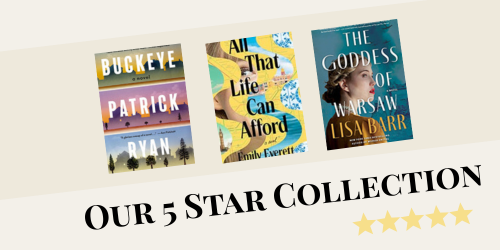
 |
The Great Gatsby |
by F. Scott Fitzgerald |
 |
Book Summary |
There are only the pursued, the pursuing, the busy and the tired. Extravagant rumors abound of a man named Jay Gatsby who has newly arrived to the coastline of a section of Long Island known colloquially as West Egg. Long into the night, the mysterious Gatsby threw lavish parties at his sprawling estate, but when alone, Gatsby could be found staring longingly at a solitary green light across the dark water. For all Gatsby has attained in his life, that green light represents all that he lost. The greatest story to encapsulate the roaring twenties, The Great Gatsby follows the eventful lives of the denizens from East and West Egg in this timeless classic of American literature. From the Publisher |
Discussion Questions |
1. On page one, Nick Carraway, the narrator, quotes his father, "Whenever you feel like criticizing anyone, just remember that all the people in this world haven't had the advantages that you've had." Later, Nick adds, "In consequence, I'm inclined to reserve all judgments." Discuss how characters throughout the story judge one another, fairly or unfairly. What does Nick mean by his belief that "reserving judgments is a matter of infinite hope"?
2. Nick describes East Egg and West Egg in chapter one. Discuss the differences between the Buchanan and Gatsby mansions. How does Fitzgerald's language hint at the tension between the "old money" class and the nouveau riche? 3. Appearances play a significant role in The Great Gatsby. Discuss your first impressions of Nick, Tom, Daisy, and Jordan. What specific lines of dialogue or gestures begin to reveal their true characters? Daisy confides to Nick that she's "'had a very bad time ... and I'm pretty cynical about everything.'" What does it mean to be cynical? How does cynicism appear throughout the story? 4. Discuss the role and treatment of women in the novel. Daisy tells Nick that upon the birth of her daughter she said: "I'm glad it's a girl. And I hope she'll be a fool-that's the best thing a girl can be in this world, a beautiful little fool." Do you think Daisy believes what she says? What does Nick mean when he states, "'Dishonesty in a woman is a thing you never blame deeply'"? 5. Rumor, innuendo, fabrications, and speculations pervade the story, especially around the true identity of Jay Gatsby. Daisy brings up Nick's engagement to a girl "out West." Nick replies that it's "libel." Daisy rejects Nick's straightforward response by exclaiming, "'We heard it from three people, so it must be true.'" Discuss how Daisy's insistence relates to the way untruths and false information permeate today's society. 6. At chapter one's conclusion, Nick witnesses Gatsby reaching across the bay toward a single green light. This light has come to be one of the most enduring symbols in twentieth-century literature. What does the green light represent to Gatsby in this part of the story as compared to its symbolic meaning near the end of the book? Discuss other recurring symbols in the text, including the eyes of Dr. T. J. Eckleburg; the colors white and yellow; and New York City. 7. People flock to Gatsby's parties compelled by the stories they've heard of their mysterious host. Discuss Nick's observations of these people: "It was testimony to the romantic speculation he inspired that there were whispers about him from those who had found little that it was necessary to whisper about in the world." How does Gatsby encourage the rumors surrounding his true identity? What affectations does Gatsby employ to protect the facade? How does the man with the owl-eyed spectacles foreshadow that Gatsby is not who he claims to be? How and why does Nick see through Gatsby's pretense from the start? Although Nick seems somewhat immune to gossip, how do his observations betray his apparent detachment? 8. Discuss the role of class in the novel. How do Tom and his friends condescend to those whom they determine are below them? Gatsby strives to be accepted by Tom and the East Egg residents, but they look upon him and his outward displays of wealth. How does this scorn reveal their hypocrisy? Discuss the character of Myrtle Wilson. How does she adopt the snobbery of the upper classes? In the New York apartment, Nick notices "The intense vitality that had been so remarkable in the garage was converted into impressive hauteur." What does hauteur represent to Myrtle? When Myrtle says Daisy's name out loud, Tom breaks her nose. Why does he feel entitled to enact violence on Myrtle? 9. Although The Great Gatsby is set in the 1920s during the Prohibition Era, many scenes feature alcohol. What commentary might the author be making in regard to how drinking affects human relationships? How does alcohol play a role in the Plaza scene? During the Prohibition Era it was illegal to purchase, sell, or drink alcohol, but booze flows freely in East and West Egg, as well as in NYC. How is this an example of privilege? 10. Why does Gatsby care about Nick's opinion of him? While Nick believes that Gatsby is lying about his past, he is still drawn to him. Why is Nick so fascinated by Gatsby? How is this fascination with Gatsby's life story for Nick "like skimming hastily through a dozen magazines"? As Gatsby and Nick drive into New York City, Nick thinks, "'Anything can happen now that we've slid over this bridge . . . anything at all.' Even Gatsby could happen, without any particular wonder." What does Nick mean by "Even Gatsby could happen"? 11. Ethnographic stereotyping occurs throughout The Great Gatsby, and references to racist and white supremacist ideologies are introduced in chapter one: "It's up to us, who are the dominant race, to watch out or these other races will have control of things." In addition to Tom's embrace of "Nordic" supremacy, anti-Semitic descriptions of Meyer Wolfsheim and his secretary appear disturbing and out-of-touch to the twenty-first-century reader. Discuss the overt language and stereotypical imagery that Fitzgerald employs. What purpose, if any, does the language serve to reveal character? What does it tell you about this period in time in which the novel was first published? 12. In chapter five, Gatsby and Daisy are reunited in Nick's cottage. Discuss how each character reacts on this occasion. How does Gatsby reveal his insecurities? How does the author use the weather as a metaphor for their emotions? Gatsby believes that Daisy has only truly loved him, yet he goes to extremes to impress her. Why do you think that is? What do you think Daisy means in Gatsby's room when she says, "'They're such beautiful shirts. . . . It makes me sad because I've never seen such-such beautiful shirts before.'" Gatsby shows Daisy news clippings he has collected about her that. In what other ways has Gatsby's love or infatuation for Daisy become an obsession? 13. In chapter six, Nick wonders why the "inventions" surrounding Gatsby's identity "were a source of satisfaction" to James Gatz. The reader learns that then seventeen-year-old James Gatz concocted "The most grotesque and fantastic conceits [that] haunted him in his bed at night." Discuss the following line in relation to Gatz's early machinations for a different life: "For a while these reveries provided an outlet for his imagination; they were a satisfactory hint of the unreality of reality, a promise that the rock of the world was founded securely on a fairy's wing." How does the phrase "unreality of reality" relate to aspects of twenty-first-century life in America? 14. In chapter six, how does Tom's and Daisy's presence at the party illuminate differences between the old-moneyed families, represented by the Buchanans, and the newly moneyed, represented by Gatsby and certain partygoers, including movie producers, celebrities, and bootleggers. How does Tom reveal his disdain for Gatsby, and by association his condescension for people he deems below him? Why does Gatsby insist on introducing Tom as "the polo player," and why does Tom say, "'I'd a little rather not be the polo player"? At the end of the evening, Nick surmises that the party "offended" Daisy, noting, "She was appalled by West Egg, this unprecedented 'place' that Broadway had begotten upon a Long Island fishing village-appalled by its raw vigor that chafed under the old euphemisms and by the too obtrusive fate that herded its inhabitants along a short-cut from nothing to nothing. She saw something awful in the very simplicity she failed to understand." Discuss the meaning of this complex sentence, and rephrase it using simpler terms. 15. Hopes and dreams figure prominently in The Great Gatsby. Toward chapter six's conclusion, Gatsby feels bereft after Daisy leaves the party. Although he convinces himself that he can re-create the past and marry Daisy, the illusion begins to crumble. How does the "desolate path of fruit rinds and discarded favors and crushed flowers" foreshadow the shattering of Gatsby's dreams? 16. The story's tone abruptly shifts at the start of chapter seven. Gatsby has fired his servants, and the parties are no more. Discuss the simile "So the whole caravansary had fallen in like a card house at the disapproval in her eyes." Why are the parties and staff no longer necessary to Gatsby? Discuss how Tom confronts Gatsby in the Plaza suite, as well as Daisy's ultimate betrayal by choosing Tom over Gatsby. Why does Daisy's admission of her love for Tom "bite physically" into Gatsby? 16. What does Nick mean in writing that Jordan, "Unlike Daisy, was too wise to ever carry well-forgotten dreams from age to age"? Ultimately, why do you think Daisy chose Tom over Gatsby? Given the corruption of Gatsby's life, why is his dream "incorruptible"? What are Gatsby's dreams? Discuss how Gatsby's need to fulfill these dreams destroyed him in the end. 17. When Mr. Wilson, distraught with grief, stares out at the eyes of Dr. T. J. Eckleburg, he says, "'God sees everything.'" What message can you glean from this simple statement? What comment do you think the author is trying to make by equating God with an advertisement? 18. As Nick says goodbye to Gatsby during what will be the last time he sees him alive, he says, "'They're a rotten crowd . . . you're worth the whole damn bunch put together.'" Do you agree or disagree with Nick? Do you think Nick really believes this? Explain your answers. 19. Discuss the final three paragraphs of the book. How is this conclusion a statement on the dangers and delusions of holding on to the past? Explain your answer. From the publisher |
Looking for your next group read? Explore 4+ years of curated picks that actually spark a conversation ....
|
You May Also Like |
 The Book of Doors
Book Review:This book is a must-read for anyone who's interested in the fashion world or enjoys reading stories about female friendships. It follows the journey of Gloria and Estee Lauder, two women who share their dreams of working in ...More
|
 The BoyfriendBook ReviewAnother Freida McFadden book that is guaranteed to keep you guessing. Sydney Shaw is a young 30-something woman living and dating in NYC. Sydney is very relatable. Partly because what female hasn't had ... More
|
 The Violin Conspiracy
This book grabbed my attention from the very beginning, with the opening playing beautiful classical music. A few times throughout the book, there are additional snippets of music. It's one of the bonuses of listening to a book on audio ...More
|
 Local Woman MissingLocal Woman Missing is a gripping psychological thriller by Mary Kubica, filled with suspense, mystery, and secrets. I loved how this book grabbed from the first chapter and had me on the edge of my seat... More
|
Visit Our Blog |
You May Also Like |
Looking for a guaranteed 5-star read? We've curated our all-time favorites ....
|








